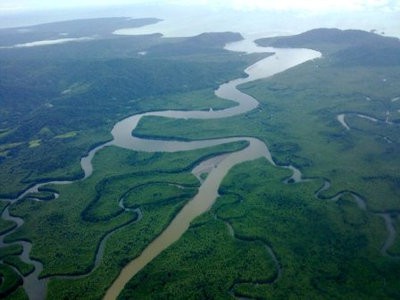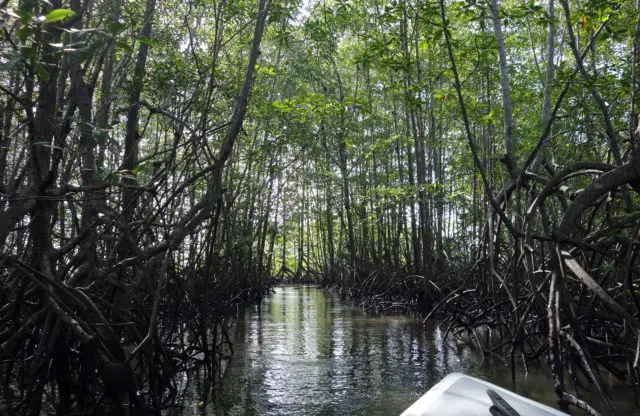Costa Rica is going through a complicated situation because it is divided between those who want to protect its wonderful biodiversity and those who are not willing to contribute to making that happen by taking predatory actions that can affect all the inhabitants of our land in the short or long term.
In The Costa Rica News (TCRN), we have been emphasizing the issue of what has happened through uncontrolled pineapple crops inside protected wild areas. An issue that has been denounced by a large number of Costa Rican environmentalists, many of them receives threats, others simply waiting for answers to their demands.
A theme that revives…
Let us recall that local small farmers, tour operators, native communities, all possible affected, as well as environmentalists, university students, women’s groups, invited a town hall of citizens in the Park of San Pedro de Montes de Oca, to define actions for combating the reemergence of agro-corporate pineapple project in Osa.

According to information, the National Technical Secretariat of Costa Rica (SETENA), revived the petition that allows the planting of 500 hectares of pineapple, which will seriously affect the Térraba-Sierpe wetland.
The Ministry of Environment and Energy of Costa Rica (MINAE), is presumably in charge of defining the formal future of the “Finca Palmar Sur” Project of the multinational Piñera Del Monte – Pindeco.
In May 2017, SETENA gave environmental viability to the pineapple project in less than 20 days and received much better treatment than given to any Costa Rican family requesting house construction permits. The monoculture would be developed less than 500 meters from the Palmar Sur Plaza, which puts the population’s health at risk due to the toxic and agrochemical levels that would be used in this type of crop.
It should be noted that Finca Palmar is located less than 5 kilometers from the core of the Térraba-Sierpe Wetland (HNTS) creating a clear and present risk of contamination by agrochemicals.
The concerns are based on a study by the University of Costa Rica (UCR) that demonstrated the presence in the Wetland of bromacil and ametrine residues (illegal pesticides, highly dangerous), which are used in the production of pineapple and sugarcane. The study concluded that the traces of both herbicides are transported many kilometers up via sediments and water from the Térraba River.
The studies highlight that within the area of the farm to be used for the plantation, there are nine archaeological sites and at least one considered heritage importance from the Delta del Diquís. The Costa Rican State since 1995 has protected this area as a “Ramsar” Site, specifically the Delta del Diquís, within the Térraba – Sierpe Wetland.
It is worth mentioning that in June 2014, the United Nations Educational, Scientific and Cultural Organization (UNESCO) declared this area (the Wetland) as a World Heritage Site for Humanity, which means that any activity that takes place near the site must avoid the damping of productive activities in areas surrounding the wetland, archaeological sites and landscape for future generations of Costa Ricans and Humanity.

The Ecological Federation (FECON), in its annual Nation Report 2019 registers a 300% increase in pineapple invasions in Protected Wild Areas and Wetlands emphasizing the results on the invasion of pineapple agribusiness. The report announced the existence of 3,824 hectares planted with pineapple within the Northern Border Corridor, Maquenque and Barra del Colorado Wildlife Refuges”.
The pineapples have invaded 16,324 hectares of protected wetlands. This data reveals an increase of more than 50% reported a year ago when Fecon announced that there was about 1300 Ha of pineapple in the same area. As we have expressed in our articles, there is a current conflict between the conservation effort by the part of many ecologically-minded citizens and organizations against the profit-based dynamics of the expansion of destructive monocultures such as pineapple in Costa Rica.
Fecon adds that the increase of pineapple crops in Protected Areas is at a 300% rate increase, clearly indicating that pineapple expansion is one of the most important environmental emergencies facing the country. The SETENA Technical Secretariat approves three thousand hectares of pineapples annually legally, but most of this expansion occurs illegally, such as those that occur within Protected Areas and Wetlands.
FECON at the time, states that pineapple expands uncontrollably, and the government looks the other way and even denies that this issue is an important problem. The lawsuits filed by one the most radical and neo-liberal business associations not only reveal their power struggle but also serves to crush minority community-based interests that seek to protect the environment. Fecon adds that the pineapple industry uses more agro-toxins per hectare of cultivated crops than even bananas.
Costa Rica is the main importing country of pesticides in the region, and the pineapple industry is perhaps the most pollutant with agrochemicals of all crops. According to Henry Picado, President of FECON, there is the clear possibility that public schools in the country continue to be fumigated, in and around their locations, with carcinogenic pesticides, with pesticides that have neurotoxic effects, which cause people to have learning difficulties and other irreversible health conditions.
Picado says, “a while ago, the Platanar school in Florence (San Carlos) was sprayed by pineapple company when the children were inside and more than 21 children and their teacher had to be urgently evacuated due to immediate poisoning effects that aroused”. However, Costa Rica does not have regulations on the spraying of residential, educational or health centers. Experts insist that the authorities refuse to generate regulations in this regard.
Finally, the general public must know that unauthorized uses of agrochemicals represent a high risk of exposure to the entire Costa Rican population because their applications are carried out outdoors, without those affected being aware of the risk involved with the use of these types of products causing acute and severe poisoning.


